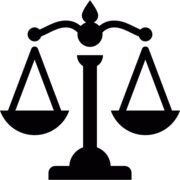Best ADR Mediation & Arbitration Lawyers in Istanbul
Share your needs with us, get contacted by law firms.
Free. Takes 2 min.
List of the best lawyers in Istanbul, Turkey
Turkey ADR Mediation & Arbitration Legal Articles
Browse our 3 legal articles about ADR Mediation & Arbitration in Turkey written by expert lawyers.
- Enforce ISTAC Arbitration in Turkish Commercial Leases
- ISTAC arbitration clauses allow commercial landlords and tenants to bypass the 2-3 year backlog in Turkish civil courts, often resolving disputes within 6 months. A valid arbitration agreement must be in writing and clearly state the parties' intent to refer specific disputes to the Istanbul Arbitration Centre (ISTAC). Turkish law... Read more →
- How to Enforce Foreign Arbitral Awards in Turkey: A Guide
- Turkey is a signatory to the New York Convention, meaning foreign arbitral awards are generally enforceable provided there is reciprocity between Turkey and the country where the award was rendered. The enforcement process, known as "Tenfiz," requires a formal lawsuit in a Turkish Civil Commercial Court to convert a foreign... Read more →
- Arbitration in Turkey
- The arbitration scene in Turkey is mainly occupied by four institutions, namely: Turkish Bar Association Arbitration Centre, Turkish Insurance Arbitration Commission, Istanbul Arbitration Centre(ISTAC), Istanbul Chamber of Commerce Arbitratiın Centre(ITOTAM). All four of these institutions process and resolve a large number of disputes of monetary value.A recent development in Turkish... Read more →
About ADR Mediation & Arbitration Law in Istanbul, Turkey
Alternative Dispute Resolution (ADR) that includes Mediation and Arbitration, is a highly accepted and widely practiced method of dispute resolution in Istanbul, Turkey. As an alternative to the court proceedings, it aims at resolving disputes in a less adversarial and more efficient manner. Arbitration is typically a consensual process, where disputes are resolved privately by an appointed arbitrator. Mediation, on the other hand, involves the intervention of a neutral third-party mediator who guides the parties towards reaching a mutually acceptable resolution.
Why You May Need a Lawyer
You may need a lawyer specializing in ADR Mediation & Arbitration in a variety of circumstances. These include contractual disputes, employment conflicts, family matters, personal injury claims, real estate disagreements, and commercial disputes. A proficient lawyer can provide expert advice, represent your interests and guide you through the intricacies of the mediation or arbitration process.
Local Laws Overview
The legal framework surrounding ADR, Mediation, and Arbitration is governed by several laws in Turkey. These include the Turkish Commercial Code, the Civil Procedural Law and the Law on Mediation in Civil Disputes. In addition, Turkey is a signatory to international conventions, including the New York Convention of 1958, which governs the recognition and enforcement of foreign arbitral awards. Understanding these complex laws requires the assistance of an experienced legal professional.
Frequently Asked Questions
1. What is the difference between mediation and arbitration?
Mediation is a non-binding process led by a neutral third party to facilitate a mutually acceptable settlement between the disputing parties. Arbitration, on the other hand, is a more formal process where an arbitrator hears the dispute and makes a legally binding decision.
2. In which situations can ADR be used instead of going to court?
ADR can be used in a variety of situations, including commercial, personal, family and employment disputes. It is an optimal choice when parties seek a more timely and cost-effective resolution compared to traditional court proceedings.
3. How long does the ADR process take?
The duration of the ADR process varies depending on the complexity of the case, readiness of parties, and the chosen method of ADR. However, it is generally quicker than the court proceedings.
4. Are ADR decisions legally binding?
In Mediation, the outcome is not binding until both parties agree to a resolution and it is signed in the form of an agreement. In Arbitration, the arbitrator's decision is final and legally binding.
5. Can I appeal the decision made by an arbitrator?
Generally, the arbitral decisions are final and enforceable under Turkish Law unless there is a very strong reason to challenge the award, such as a serious procedural error or corruption.
Additional Resources
The Union of Turkish Bar Associations, the Istanbul Arbitration Centre, and the Ministry of Justice Mediation Department provide resources, information, and assistance in the field of ADR. Further, various NGOs and institutes such as the Turkish National Committee of International Chamber of Commerce also promote and provide education on ADR in Turkey.
Next Steps
If you require legal assistance in ADR Mediation & Arbitration, the first step would be to consult with an experienced lawyer in this field. It is essential to understand your rights, responsibilities and potential outcomes before starting the process. From interpreting the legal framework to representing your interests during proceedings, a competent lawyer can provide the necessary guidance and support.
Lawzana helps you find the best lawyers and law firms in Istanbul through a curated and pre-screened list of qualified legal professionals. Our platform offers rankings and detailed profiles of attorneys and law firms, allowing you to compare based on practice areas, including ADR Mediation & Arbitration , experience, and client feedback.
Each profile includes a description of the firm's areas of practice, client reviews, team members and partners, year of establishment, spoken languages, office locations, contact information, social media presence, and any published articles or resources. Most firms on our platform speak English and are experienced in both local and international legal matters.
Get a quote from top-rated law firms in Istanbul, Turkey — quickly, securely, and without unnecessary hassle.
Disclaimer:
The information provided on this page is for general informational purposes only and does not constitute legal advice. While we strive to ensure the accuracy and relevance of the content, legal information may change over time, and interpretations of the law can vary. You should always consult with a qualified legal professional for advice specific to your situation.
We disclaim all liability for actions taken or not taken based on the content of this page. If you believe any information is incorrect or outdated, please contact us, and we will review and update it where appropriate.

















